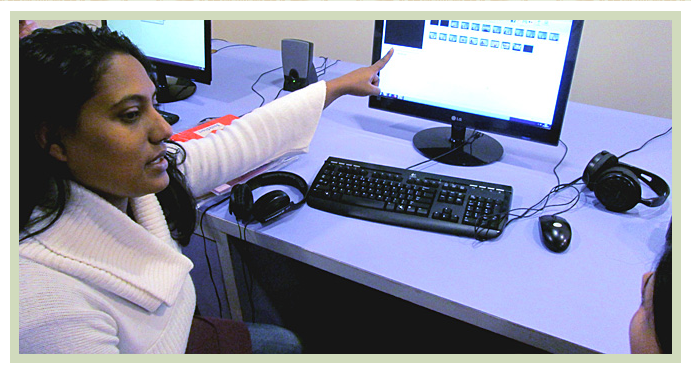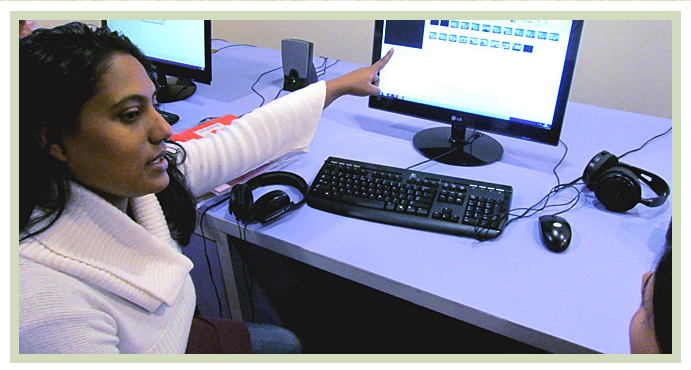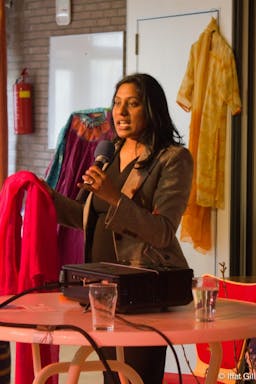Female Digital Literacy in Europe- How different is it from other parts of the world?
Jan 21, 2015
Story


A few years ago, I moved to Amsterdam. Amsterdam is home to a hundred and seventy eight nationalities; the ethnic makeup of Amsterdam being 49.5% of Dutch ancestry and 50.5% of foreign origin. Due to my background in projects to improve female digital literacy in Pakistan, I mostly thought of the lack of resources and opportunities in the developing world. It was after I moved to Europe, that I got the opportunity to observe the digital literacy situation in a cosmopolitan city like Amsterdam.
I started working with women groups, networks and organisations in Amsterdam, working with different nationalities, ethnicity and backgrounds. During my interaction with these groups, I discovered that digital empowerment, especially for women, was needed here too!
'Digital illiteracy' has two levels; first, a lack of basic digital literacy. The demographic which is affected by this issue are predominantly Generation X or baby boomers or people who have immigrated from different countries after finishing school and have been living in the Netherlands for decades. The later is also considered the least integrated demographic in the Dutch culture. I worked with community leaders who were involved in the empowerment of local women communities. Both these leaders and their target groups often found themselves facing technological issues due to lack of proper training. Most of these women relied on younger friends, children or grandchildren to explain how certain software or programs worked, which limited their work and productivity.
These women empowerment organisations and networks do not just need technical support but they also lack basic computer skills. Many things they are restricted by are simple (well, simple once you know how to) tasks such as setting up a Google or LinkedIn account. They have the equipment, but not the knowledge to use it beyond the basics. Most community organisations were interested to recruit me because of my digital literacy skills. I would teach these women leaders how to set up their email accounts, open, retrieve and save their email attachments, find a specific document from their computers or laptops. I never considered myself a technical person, but these women started referring to me as their computer wiz-kid!
A lot of these groups also need assistance with setting up web presence, such as a simple Wordpress site. Available trainings mostly were too advanced. Many women showed interest in learning about smart phones, iPhones and tablets because they wanted to be updated about modern tools of communications and not rely on others to show them how to check their mails or do online banking. Women want to break free from their technological dependence and take control of their lives and independence through digital empowerment.
The second level of digital illiteracy is one that exists among the digitally literate and can also be found among people working in small and big NGOs. This demographic uses the modern ICTs in their work on a regular basis. But they never learned about the repercussions of using these modern tools. The lack of training on ‘netiquette’ or Internet etiquette is pervasive. For instance, I came across many small and medium organisations that do not use “BCC”, while sending a message to multiple people and inadvertently end up violating other people’s privacy.
Most of these organisations feel the need to have a strong online presence, both on the web and through social media channels. Although this is indeed important, it should only be approached after a proper strategy and system is in place. As an NGO, you might end up hurting your cause or brand if you are not prepared well. For example, some people use their personal social media accounts for work related posts. Even though this is an acceptable practice, it may not always give a professional impression if your followers end up at your party or holiday photos.
It was a surprise for me to see that many of the same concepts and trainings that I worked on for Pakistan were applicable in Amsterdam as well. Looking at the needs of both the local organisations and the local communities, I proposed to offer two training programs for digital literacy in different parts of Amsterdam. The training programs are targeted towards community women who wanted to learn about digital media. I am leading the group which aims to start basic digital literacy training in two neighbourhoods of Amsterdam.
On the other hand, I am also leading, in partnership with Bits of Freedom, a project to create a training manual to sensitise school children about Internet security, privacy and policy issues. This manual will be available for school teachers to download in July. Many of the issues raised in this manual are directly applicable for NGOs as well. My personal business venture looks at the digital media needs for organisations. Our first series of digital media training for NGOs and nonprofits starts this June!
What I have found is that even though the access and digital empowerment situation is different in the developed world, the lack of awareness seems to overlap in many cases. The current situation of digital literacy in women that I experienced is also reflected in the Digital Agenda for Europe. Women are under-represented at all levels in the ICT sector, especially in decision-making positions. The number of young people studying and choosing careers in ICT is decreasing and is not keeping up with growing demand. EU Commissioner for Digital Agenda Europe, Neelie Kroes is a strong advocate of empowering girls and women in digital skills so that they can compete with men in every sector of life. Learning about new technologies is the way forward. Ms.Kroes has started a number of initiatives to address the situation at policy making level Europe wide. I hope that I can contribute to that in my own small way, just like I am trying to make a difference in developing countries through my nonprofit venture ChunriChoupaal.
Despite the current challenges and problems, a lot of initiatives like mine are taking place around the world. Local initiatives and community leaders who are trying to combat the situation must be encouraged and supported by all stakeholders. With the right tools and skills, there are truly no bounds to the success women can achieve both socially and economically!




